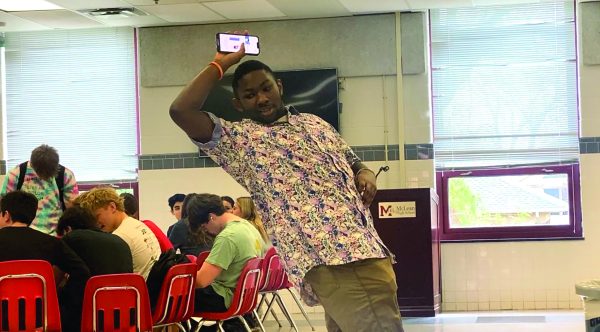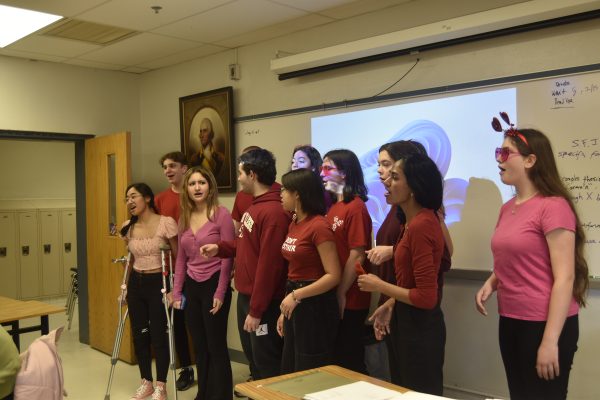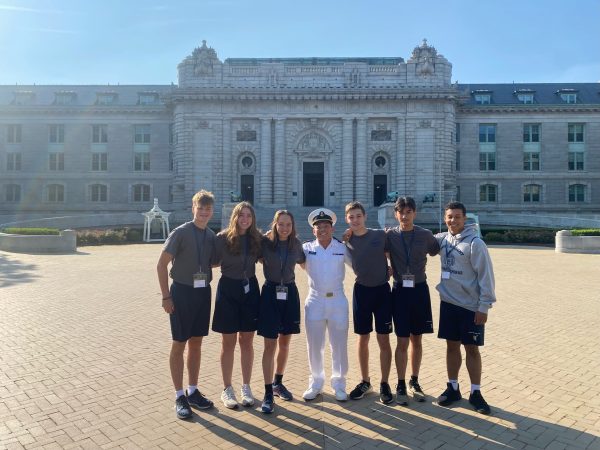Should I stay or should I go?
Teachers offer advice on choosing between in-state and out-of-state colleges
November 22, 2016
Most seniors have probably heard the conversation during school—while milling about the hallways, in a class or at a club meeting. The question is simple, yet complicated: Are you going out of state for college?
A major benefit to attending a public, in-state school in Virginia is the more affordable tuitions they offer. “We’re really lucky. The cost of tuition is very affordable. It’s a smart thing to do,” English teacher and James Madison University alumna Elise Emmons said.
The average public in-state tuition plus room and board fee for Virginia Tech is $21,416, while the average cost of tuition plus room and board at the University of Pennsylvania, a private university, is $69,340. These schools exemplify the common gap between in-state and out-of-state tuition costs; however, these costs are not all-inclusive due to the variance of costs between colleges and financial aid circumstances.
Another reason many students choose to go to schools in Virginia is the high quality education many of them offer. “There are so many good schools in Virginia,” Emmons said. “I don’t really see a reason why you would want to go out of state.”
According to college rankings by U.S. News & World Report, the University of Virginia is the 24th best overall university in the country, outranking many private and out-of-state universities. The College of William and Mary sits at number 32. Other Virginia schools, like James Madison University and Virginia Tech, consistently rank highly as well.
However, for many teachers and students, the benefits of going to an out-of-state school are equally enticing. “I really wanted something different. I was ready for a big change. I was ready to be away from home and at a big state school, and I liked the location,” history teacher and Appalachian State University alumna Margaret Tran said.
Additionally, many out-of-state schools offer scholarships that match the affordable price of in-state tuition. “A lot of schools, particularly public schools in different states, are giving really great scholarships to students out-of-state to get them to come there,” college and career center specialist Laura Venos said.
There are so many good universities in Virginia. We’re really lucky. The cost of tuition is very affordable. It’s a smart thing to do.
— Elise Emmons, English teacher
Many students attend out-of-state schools because they want a more diverse student population. However, even in-state schools have diverse student bodies. “Virginia is a really big state and where we are is very different from other parts of Virginia. The diversity will be there,” Venos said. “All [Virginia] schools are trying to get students from all over the country and all over the world.”
When choosing a college, it is important to carefully consider what specific programs each school has to offer. “If you figure out what you want to do, that narrows your choices down,” social studies teacher and University of Pennsylvania alumna Kieran Sweeney said. “If you have no idea, I would pick a school that has a variety of programs.”
Teachers also urge students to think about their post-college plans. It is important to make connections with people in the area where one plans to live after graduation.“Connections you make [during college] help you when you get out in the real world,” Tran said. “If I had stayed in Virginia, it would have been easier and quicker to get a teaching job.”
Students must keep in mind that their success is not dictated by the college, but by the choices they make while at college.
“I think college is what you make of it,” Venos said. “Don’t feel like you’re going to have a lesser college experience by staying close to home. Everybody is going to have a different path. The most important thing is finding a school that fits.”











